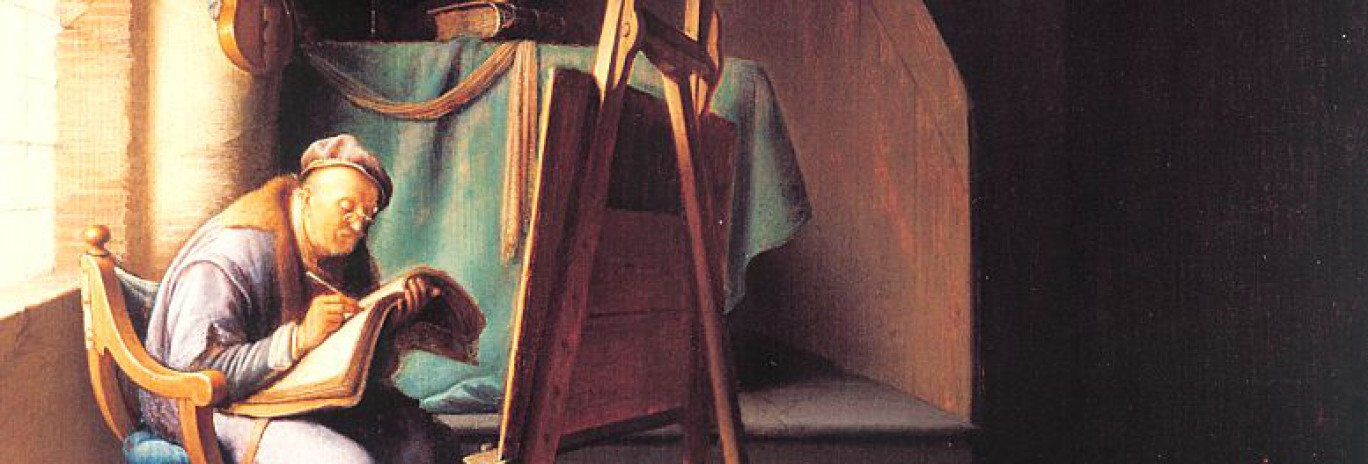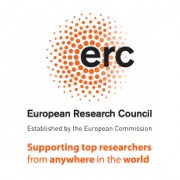Events
Technical Art History Colloquium XIV: Recent Reconstructions in the Rembrandthuis, 28 September, Amsterdam
The Technical Art History Colloquium is organised by Sven Dupré (Utrecht University and University of Amsterdam, PI ERC ARTECHNE), Arjan de Koomen (University of Amsterdam, Coordinator MA Technical Art History), Abbie Vandivere (University of Amsterdam, Coordinator MA Technical Art History & Paintings Conservator, Mauritshuis, The Hague) and Erma Hermens (University of Amsterdam and Rijksmuseum). Monthly meetings take place on Thursdays. In the fourteenth edition of the Technical Art History Colloquium, dr. Arjan de Koomen (Technical Art History, University of Amsterdam) and dr. Herman den Otter (Wood Conservation, University of Amsterdam) will give papers about recent reconstructions in the Rembrandthuis. Admission to the colloquium is free. All those interested are welcome.
For the occasion of Rembrandt’s 300th birthday in 1906, the city of Amsterdam bought the house on the Jodenbreestraat that the artist occupied until he went bankrupt. As the house had changed considerably over the years, architect De Bazel was invited to redesign the house-museum. The facade became a reconstruction of its 17th-century appearance, while the interior was transformed in a modern museum to display a small collection of prints. To the disappointment of many, it did not aim to recreate Rembrandt’s work and living spaces. During the 1990s, the Rembrandthuis stepped away from its De Bazel interior and since then re-created Rembrandt’s studio, pupil’s studio, printing studio, living rooms, as well as the artist’s collection of rarities. Nowhere in the world one could visit such a detailed reconstruction of a 17th-century schilder-camer. The Rembrandthuis reconstructions have met quite some criticism, mainly from art professionals who claim that they mislead and fool the public. Still, the reconstruction is a serious scholarly endeavour and an impressive and persuasive contribution to the field of Technical Art History.
The first TAH-colloquium of the new academic year is dedicated to this historical reconstruction project, combining two lectures with a visit to the Rembrandthuis to see and discuss the recent series of reconstructions and hear about ongoing plans.
Re-creating the Rembrandthuis and the Rubenshuis: Analogies and Antagonism between Antwerp and Amsterdam
Arjan de Koomen (lecturer in Technical Art History at the Universiteit van Amsterdam)
As a beneficial coincidence, the residences of the two most important artists from the Netherlands have survived. Art lovers in Antwerp and Amsterdam strove to acquire the houses in order to “turn back time” to the days of Rubens and Rembrandt, and make them places of local as well as universal veneration for these artists. As both houses had changed unrecognizably, the question if they should and could be made into artist house-museums was fiercely debated and provoked an early public discussion on the issue of historical reconstruction. This lecture is about the competitive interplay between the Flemish and Dutch initiatives in the creation of the respective house-museums. A fascinating aspect are the differing ways in dealing with the dilemma of historical re-creation.
The Reconstruction of a Wooden Seventeenth-Century Etching Press
Herman den Otter (lecturer in Wood Conservation at the Universiteit van Amsterdam)
Fifteen years ago, the Rembrandthuis ordered a “new old” etching press. It was not only meant to serve as a decorative piece of furniture, but also as a working machine to produce Rembrandt prints many hours each day for museum demonstrations. The historically accurate reconstruction was built by Herman den Otter, guided by the drawings and descriptions in Abraham Bosse’s treatise Manière de graver (1645). In this lecture, the builder himself will explain the reconstruction process and considerations.
Rembrandthuis visit
Following the two lectures, the group will visit the Rembrandthuis. Curator Leonore van Sloten and Epco Runia, Head of Collections, will briefly introduce the house-museum and its recent and future reconstruction projects. Everyone is requested to bring a ICOM or Museumkaart in order to enter the museum for free.
Download the invitation in PDF here.


